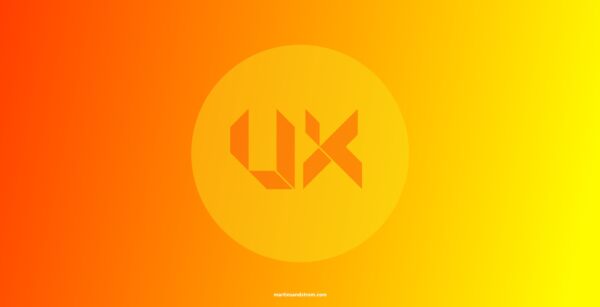Over the weekend I met up with an old colleague and friend I haven’t seen for years. Another friend of his was also present and I learnt that he had done a UX bootcamp a few years back and was now working as a UI/UX design contractor.
When he described what he was doing in his current role I asked if he was mainly focusing on UI design, to which he replied
“I also do the UX.”
“What do you mean by UX?” I followed up.
“Oh you know, user journeys, on-boarding flows and such” was his reply.
I didn’t want to sound like I lectured him but I quickly gave him my view on why I think what he just described is UI design and why UX design shouldn’t exist. That was that, we changed subject and had a good night together.
But my brain wouldn’t let it go and later that night something presented itself to me. An idea around an analogy. UX and UI has been analogised many times, to anything from brain halves to cereal. If I could only find the perfect analogy, would that make it easier for me to argue my case?
The analogy that came to my mind was that of a person and their soul.
What is the soul anyway?
In spiritual thinking there is the concept of the soul. Some say the existence of the soul can be evidenced, some less spiritually minded people say it’s all bogus. Whether the soul exists or not is not relevant for this analogy, but it’s important to understand what we mean by soul.
The definition of soul that makes most sense to me is the one that states that we, humans, all have a spirit, a body and a soul. The body is our physical embodiment of who we are. The spirit is our unique person in this lifetime, that may linger in this plane of existence when we die but will eventually move on and reunite with other spirits. The soul is part of who we are in this lifetime, but essentially we are simply a host for it. A vessel chosen to be suitable to learn something. As long as the soul has lessons to learn it reincarnates – this is why some people claim that they have been somebody else in a past life.
Your identity is made up of your spirit and your soul, both with their own preferences and agendas. Sometimes conflicting. This is all obviously just theories but if it resonates with you then maybe the analogy between Spirit/Soul and UI/UX will also make sense.
You are UI. Your soul is UX
You are a physical, tangible person. You exist. You have an identity. You interact with the world. You are the UI.
Your soul is not physical. Not tangible. You can’t directly interact with your soul. It’s just this ‘thing’ that exists and supposedly has an enormous impact on your life but you don’t have any control over it. Your soul is the UX.
UX design was a mistake
Our industry made a mistake many years ago when it allowed UX design to become an established term. Never have I seen so much confusion around one term that has caused a lot of misunderstandings (and vague role descriptions).
I am now on a mission to try and correct that mistake by helping product teams use terminology that is easily understood. UI design does not equal visual design. UI design equals design of anything that the user interfaces with. A user journey is interface design. Of course it is. You are designing a string of touch points (interfaces) that the user will be exposed to and interact with.
For example:
- User calls up customer service
- It’s out of business hours so a recorded voice directs the user to go online
- User visits the company’s website and finds ‘My account’ link
- User logs into their online account
- User self-serves in the online account
Mapping this journey and working on it is UI design. 100%. A journey that steps across three touch points (phone, public website, logged in account). You might do this journey as part of a service design project, but this particular activity is UI design. It’s not UX design. Because there’s no need for it to be UX design when we already have a perfectly appropriate term for it: UI design.
You can’t design the UX although it exists. You can’t interact or communicate with your soul even if it exists. It’s a one-way street. UX designers aren’t doing UX design. We do research and UI design. Sometimes if we’re lucky we actually get to do strategy (lucky, because strategy affects UX more than anything else). UX can’t be broken down into activities in the design process, because UX is the result of the whole team’s effort. The whole company’s effort. UX takes place in the user’s mind and we can only hope it’s going to be a good one.
Do you have a counter argument and think UX design fits perfectly into your world? Do let me know.
